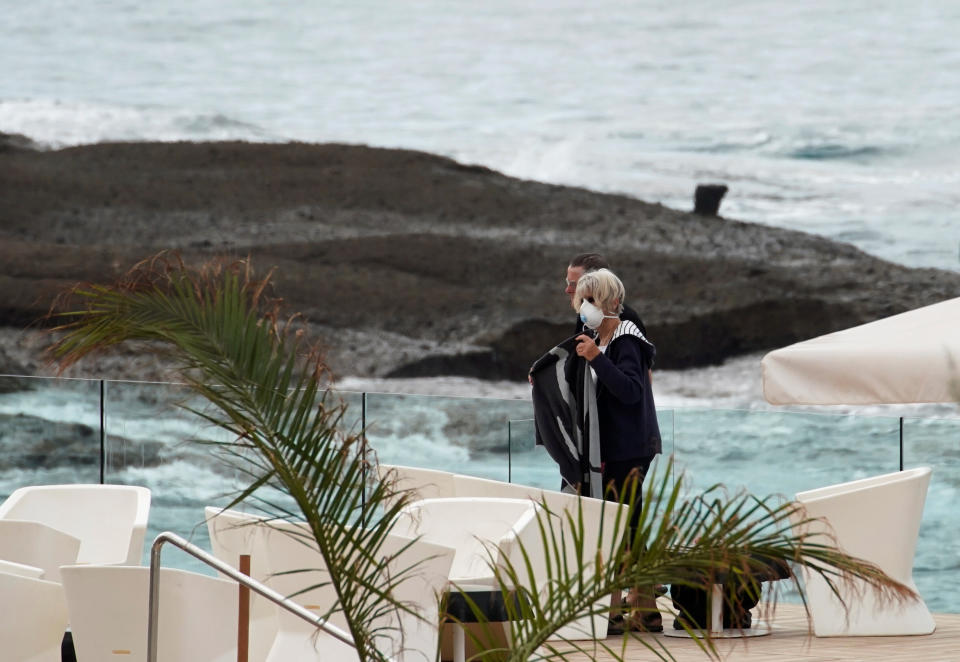Europe’s Tourist Hot Spots Dream Of Swift Summer Restart
“You can’t travel, but you can keep on dreaming,” the message reads. The accompanying video depicts a carefree paradise, full of sun and blue sky, secluded beaches and picturesque mountaintops. This, according to the tourism board for the Spanish island of Mallorca, which released the video on Friday, is what the post-coronavirus world holds for us all.
It’s a hopeful vision — particularly at a time when hospitals around the world are being overwhelmed by patients and medical supplies are stretched thin.
“This is going to be the hardest and the saddest week of many Americans’ lives,” the U.S. surgeon general warned on Sunday, ahead of an expected surge in coronavirus-related deaths. “The next week is going to be our Pearl Harbor moment, our 9/11 moment.”
In Europe, however, there are signs that the pandemic might be starting to peak. Italy registered its lowest day-to-day increase in deaths in more than two weeks — 525, said Angelo Borrelli, the head of the Civil Protection agency. The pace of infection also seemed to be slowing.
Spain recorded its lowest daily death toll in 13 days on Monday. According to the Ministry of Health, 637 patients died overnight, taking the total to 13,055.
“We are starting to see the light at the end of the tunnel,” Spanish Prime Minister Pedro Sánchez said.
For Spain, in particular, where almost 900,000 people have lost their jobs since mid-March, getting the coronavirus epidemic under control soon will be critical for the economy. Summer is the key season for the economy, as tourism represents 12% of the country’s gross domestic product. Spain received 83.7 million travelers in 2019, breaking a record for the seventh consecutive year. But if the pandemic is not controlled and the restrictions on flights are not lifted, tourists will not be able to come.
“The pandemic is going to stop, but we have to get it done before the summer, because it is the time when jobs increase in Spain,” Octavio Granado, former secretary of state for social security, said in an interview last week, according to HuffPost Spain. “We have to ensure that tourism continues to function, and for this we need a normalized month of June.”
The summer season is particularly important for temporary jobs in sectors such as the hotel industry. On March 19, the Spanish government ordered all hotels to close. Already, normally bustling tourist hot spots had grown quiet, as travelers canceled reservations and returned to their home countries.
“A tsunami has arrived,” Ramón Estalella of the Confederation of Spanish Hotels told The Guardian last month. “A meteorite has fallen on us and we have to see how we survive.”
Government officials have not set a date for when they expect the Spanish economy to return to normal. “Restoration will be complete at some point. The most difficult thing is to know the timing in which this will occur, ” said José Luis Escrivá, Spain’s minister of inclusion, social security and migration.
On Saturday, the prime minister announced that the state of emergency would be extended until April 26, but signaled that some economic restrictions could be lifted after Easter. “We are not going to extend the standstill of economic activity,” he said.
Some experts estimate that it will take a year for economic activity to return to pre-pandemic levels, however.
“It is not going to return to growth levels any time soon, since this situation has punctured the economy, and as a consequence it will gradually deflate. I don’t think it will come back until next year,” Víctor Canalda, lawyer and professor of labor law at the Open University of Catalonia, told HuffPost Spain.
But Spain’s tourist destinations hope that they will be at the forefront of people’s minds whenever the crisis abates. In Palma, Mallorca’s capital, the tourism board is planning to remodel the beach area this year in order to make it more attractive to visitors.
“When this is over,” the group says in a new video campaign, “we are your first destination.”
With reporting from HuffPost Spain, AP, and Reuters.

A HuffPost Guide To Coronavirus
Stay up to date with our live blog as we cover the COVID-19 pandemic
How long are asymptomatic carriers contagious?
Why it might take weeks for people and businesses to get government relief
How to feel less lonely during social distancing if you live alone
I just got out of a COVID-19 ICU. Here’s how I made it through.
How to make a no-sew coronavirus face mask
What to do if you live with someone with COVID-19
What coronavirus questions are on your mind right now? We want to help you find answers.
Everyone deserves accurate information about COVID-19. Support journalism without a paywall — and keep it free for everyone — by becoming a HuffPost member today.
Also on HuffPost
Love HuffPost? Become a founding member of HuffPost Plus today.
This article originally appeared on HuffPost.

